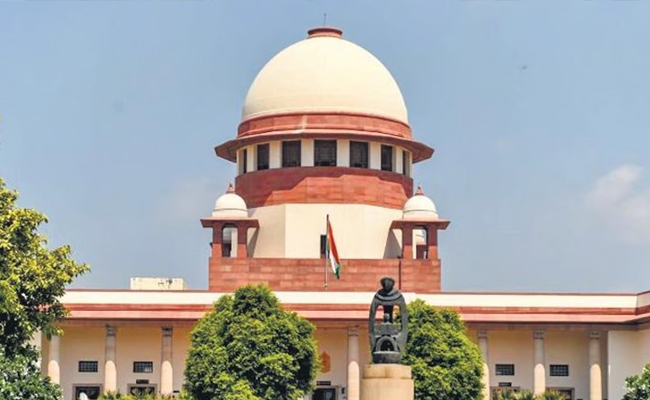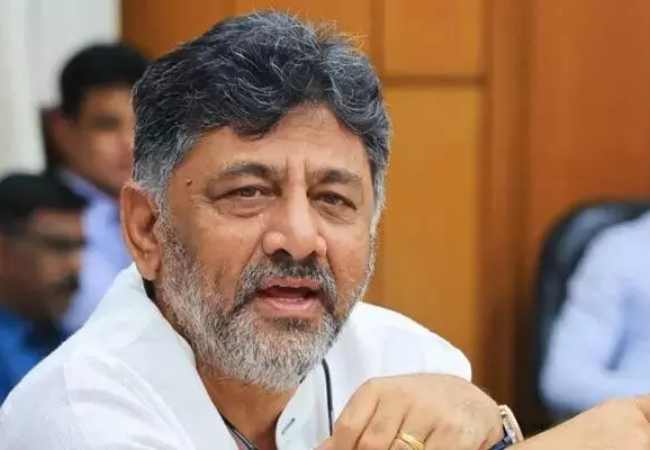New Delhi (PTI): The Supreme Court on Friday directed all high courts to either frame or amend rules on the functioning of court managers and submit it to the respective states for approval within three months.
The concept of court managers was first proposed by the Thirteenth Finance Commission (2010-2015) with the aim of providing assistance to judges in performing their administrative duties.
Court managers were to be appointed in both district courts and high courts.
A bench of Chief Justice B R Gavai, Justices Augustine George Masih and K Vinod Chandran said the high courts should frame or amend rules taking cue from Assam Rules of 2018.
"We further direct that upon receipt of the rules framed or amendments thereof by the high courts, the respective state governments shall finalise and grant approval to the same within a further period of three months," the bench said in its verdict on the issue.
The top court said the high courts and the state governments had the liberty to make suitable modifications or changes to suit their peculiar needs.
It clarified that the minimum rank of court managers should be of a class-II gazetted officer for the purpose of basic pay, allowances and other service benefits.
"We direct that all the high courts in the country shall frame or amend the rules providing for recruitment and conditions of service of court managers, by taking the Assam Rules of 2018 as the model rules, and submit it to the state government for approval within a period of three months from the date of this judgment," the bench said.
Court managers appointed in high courts should work under the directions and supervision of the registrar general or registrars of the high court, it added.
The bench said court managers appointed in district courts should work under the supervision of the registrars or superintendents of the courts concerned.
"While determining the duties, functions and the responsibilities of the court managers, the rules committee of the high courts shall ensure that their duties, functions and responsibilities do not overlap with that of the registrars of the high court/district courts," it said.
The bench said court managers, who are already working either on contractual or consolidated pay basis or on adhoc basis, should continue to offer services and be regularised subject to their passing the suitability test which will be provided in the proposed rules.
Those court managers are who already working would be entitled to regularisation from the date of their initial appointment, it added.
The bench directed that the process of regularisation of court managers will be completed within three months from the date of approval of the rules by the respective states.
"We clarify that the respective registrar generals of the high courts and the chief secretaries of the state governments shall be personally responsible for adhering to the aforesaid timelines," it said.
The bench referred to the apex court's August 2018 verdict which discussed about the need of sound infrastructure in subordinate courts.
The role and importance of court managers, the bench said, was also discussed in the verdict.
The bench said a direction was also given that already functioning court managers must be regularised by the states as their assistance was found essential for a proper administrative setup in courts.
In its February 2022 report, the Second National Judicial Pay Commission (SNJPC) underlined various aspects of judicial administration, including the role of court managers.
The report recommended the appointment of court managers to handle non-judicial functions, allowing judges to focus on their core judicial responsibilities.
According to affidavits filed in the top court, some high courts had finalised the rules for court managers approved by the respective states.
The bench said rules prepared by some high courts were pending approval of the state concerned and added, "It is further noticed that few of the high courts are yet to even frame the rules."
The bench said perusal of the existing rules showed no uniform practice was adopted by the high courts and states in framing and implementing the rules regarding court managers.
"We are at pains to say that even though the SNJPC in its report had recommended and this court in the judgment dated August 2, 2018 in the present proceedings had specifically directed the rules to be framed for determining the service conditions, the duties, etc., of court managers, various high courts and various state governments have not yet complied with the said direction," it said.
Let the Truth be known. If you read VB and like VB, please be a VB Supporter and Help us deliver the Truth to one and all.
Bengaluru (PTI): Karnataka has proposed a new Information Technology Policy for 2025–2030, offering extensive financial and non-financial incentives aimed at accelerating investments, strengthening innovation and expanding the state's tech footprint beyond Bengaluru.
The Karnataka Cabinet gave its nod to the policy 2025–2030 with an outlay of Rs 445.50 crore on Thursday after the Finance Department accorded its approval.
The policy introduces 16 incentives across five enabler categories, nine of which are entirely new, with a distinctive push to support companies setting up or expanding in emerging cities.
Alongside financial support, the government is also offering labour-law relaxations, round-the-clock operational permissions and industry-ready human capital programmes to make Karnataka a globally competitive 'AI-native' destination.
According to the policy, units located outside Bengaluru will gain access to a wide suite of benefits, including research and development and IP creation incentives, internship reimbursements, talent relocation support and recruitment assistance.
The benefits also include EPF reimbursement, faculty development support, rental assistance, certification subsidies, electricity tariff rebates, property tax reimbursement, telecom infrastructure support, and assistance for events and conferences.
Bengaluru Urban will receive a focused set of six research and development and talent-oriented incentives, while Indian Global Capability Centres (GCCs) operating in the state will be brought under the incentive net.
Incentive caps and eligibility thresholds have been raised, and the policy prioritises growth-focused investments for both new and expanding units.
Beyond incentives, the government focuses on infrastructure and innovation interventions.
A flagship proposal in the policy is the creation of Techniverse -- integrated, technology-enabled enclaves developed through a public-private partnership model inside future Global Innovation Districts.
These campuses will offer plug-and-play facilities, artificial intelligence and machine learning and cybersecurity labs, advanced testbeds, experience centres, and disaster-resistant command centres.
There will also be a Statewide Digital Hub Grid and a Global Test Bed Infrastructure Network, linking public and private research and development, and innovation facilities across Karnataka.
The government has proposed a Women Global Tech Missions Fellowship for 1,000 mid-career women technologists, an IT Talent Return Programme to absorb experienced professionals returning from abroad, and broad-based skill and faculty development reimbursements.
Shared corporate transport routes in Bengaluru and tier-two cities will be designed with Bengaluru Metropolitan Transport Corporation and other transport entities to support worker mobility.
The government said the policy is the outcome of an extensive research and consultation process involving TCS, Infosys, Wipro, IBM, HCL, Tech Mahindra, Cognizant, HP, Google, Accenture and NASSCOM, along with sector experts and stakeholder groups.
It estimates an outlay of Rs 967.12 crore over five years, comprising Rs 754.62 crore for incentives and Rs 212.50 crore for interventions such as Techniverse campuses, digital grid development, global outreach missions and talent programmes.





